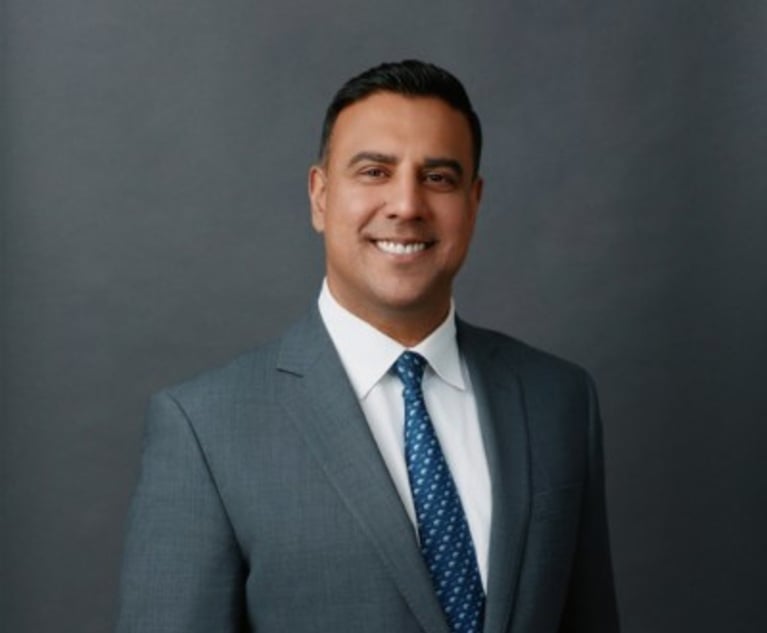Norton Rose and Fulbright & Jaworski to merge from June 2013
Norton Rose is set to merge with US firm Fulbright & Jaworski from June next year, creating a 3,800 lawyer firm. The merged entity, which will be known as Norton Rose Fulbright, will sit just outside the global top five law firms, with revenues of just under $2bn.
November 14, 2012 at 09:14 AM
4 minute read
Norton Rose is set to merge with US firm Fulbright & Jaworski from June next year, creating a 3,800 lawyer firm.
The merged entity, which will be known as Norton Rose Fulbright, will sit just outside the global top five law firms, with revenues of just under $2bn (£1.26bn).
The combined firm, which will go live on 1 June 2013, will have 55 offices, boosted by Fulbright's 11 offices and 800 lawyers in the US.
In the states, the Norton Rose Group will now have added presences in Austin, Dallas, Denver, Houston, Los Angeles, Minneapolis, New York, Pittsburgh-Southpointe, San Antonio, St Louis and Washington DC.
Norton Rose Fulbright will also have an office in Riyadh and additional strength in London, Dubai, Beijing, Hong Kong, and Munich.
Norton Rose and Fulbright have been in merger talks for some while, with Legal Week first revealing Norton Rose was among the firms being pursued by Fulbright following a review of its international strategy back in September 2011. Norton Rose subsequently confirmed that it was holding discussions with the US law firm in May of this year.
Norton Rose's partnership vote on the merger was held during the annual partnership conference in Toronto, which commenced 1 November, with 75% required to approve the tie-up. Fulbright held its vote over the past weekend.
In common with Norton Rose's recent tie ups with Canadian outfit Macleod Dixon, which went live on 1 January this year, and its three-way combination with Canadian firm Ogilvy Renault and South African firm Deneys Reitz in 2011, the deal will be structured as a Swiss verein.
Norton Rose group chief executive Peter Martyr will be the global chief executive of the merged firm. The chair-elect of Fulbright, Ken Stewart, will serve as managing partner of the US operations and will take a senior position on Norton Rose Fulbright's global executive committee.
In addition to Norton Rose's existing sector focuses, the combined firm will add two new practices: healthcare and regulatory investigations.
Martyr (pictured) told Legal Week: "We have a very complementary client base – we share many key common clients. And one of the advantages of operating in a Swiss Verein structure is that we can focus on clients without being distracted by the need to rationalise the business."
"We have been looking at the US market for a number of years, seeking a firm that meets our requirements for excellence in law, good business synergies and a compatible culture. Fulbright & Jaworski meets all our criteria; it is financially strong, with forward-looking management and similar strategic growth aspirations.
"As Norton Rose Fulbright, we will continue to invest in our strongest practice areas and develop our expertise across our key industry sectors. We also expect to continue extending our global business not only in the US, but in the emerging growth markets of the future, in particular in Latin America, Africa and Asia."
Steven Pfeiffer, the chair of Fulbright's executive committee, told Legal Week: "Norton Rose and Fulbright share remarkable similarities in practice strengths. We have had a good relationship for four or five years now and we have every certainty that the combination will be smooth and positive."
One magic circle partner in management said: "To be fair to Norton Rose they have adopted a very consistent strategy and this is just the latest development. A US arm was always going to be necessary to make this strategy work so the tie-up seems sensible. It is hard to know who is benefiting more between Fulbright and Norton Rose and indeed between clients and the firm. It is going to require a huge amount of time and effort to make a firm of this size work."
Related:
This content has been archived. It is available through our partners, LexisNexis® and Bloomberg Law.
To view this content, please continue to their sites.
Not a Lexis Subscriber?
Subscribe Now
Not a Bloomberg Law Subscriber?
Subscribe Now
NOT FOR REPRINT
© 2025 ALM Global, LLC, All Rights Reserved. Request academic re-use from www.copyright.com. All other uses, submit a request to [email protected]. For more information visit Asset & Logo Licensing.
You Might Like
View All
Rosenblatt Breaks Away From RBG, Becomes 40-Strong Standalone Firm

Eversheds Sutherland Outgoing Co-CEO to Move to Dubai to Spur Regional Growth
2 minute read
More than Half of South Australian Lawyers Report Suffering Harassment
3 minute readTrending Stories
- 1Uber Files RICO Suit Against Plaintiff-Side Firms Alleging Fraudulent Injury Claims
- 2The Law Firm Disrupted: Scrutinizing the Elephant More Than the Mouse
- 3Inherent Diminished Value Damages Unavailable to 3rd-Party Claimants, Court Says
- 4Pa. Defense Firm Sued by Client Over Ex-Eagles Player's $43.5M Med Mal Win
- 5Losses Mount at Morris Manning, but Departing Ex-Chair Stays Bullish About His Old Firm's Future
Who Got The Work
J. Brugh Lower of Gibbons has entered an appearance for industrial equipment supplier Devco Corporation in a pending trademark infringement lawsuit. The suit, accusing the defendant of selling knock-off Graco products, was filed Dec. 18 in New Jersey District Court by Rivkin Radler on behalf of Graco Inc. and Graco Minnesota. The case, assigned to U.S. District Judge Zahid N. Quraishi, is 3:24-cv-11294, Graco Inc. et al v. Devco Corporation.
Who Got The Work
Rebecca Maller-Stein and Kent A. Yalowitz of Arnold & Porter Kaye Scholer have entered their appearances for Hanaco Venture Capital and its executives, Lior Prosor and David Frankel, in a pending securities lawsuit. The action, filed on Dec. 24 in New York Southern District Court by Zell, Aron & Co. on behalf of Goldeneye Advisors, accuses the defendants of negligently and fraudulently managing the plaintiff's $1 million investment. The case, assigned to U.S. District Judge Vernon S. Broderick, is 1:24-cv-09918, Goldeneye Advisors, LLC v. Hanaco Venture Capital, Ltd. et al.
Who Got The Work
Attorneys from A&O Shearman has stepped in as defense counsel for Toronto-Dominion Bank and other defendants in a pending securities class action. The suit, filed Dec. 11 in New York Southern District Court by Bleichmar Fonti & Auld, accuses the defendants of concealing the bank's 'pervasive' deficiencies in regards to its compliance with the Bank Secrecy Act and the quality of its anti-money laundering controls. The case, assigned to U.S. District Judge Arun Subramanian, is 1:24-cv-09445, Gonzalez v. The Toronto-Dominion Bank et al.
Who Got The Work
Crown Castle International, a Pennsylvania company providing shared communications infrastructure, has turned to Luke D. Wolf of Gordon Rees Scully Mansukhani to fend off a pending breach-of-contract lawsuit. The court action, filed Nov. 25 in Michigan Eastern District Court by Hooper Hathaway PC on behalf of The Town Residences LLC, accuses Crown Castle of failing to transfer approximately $30,000 in utility payments from T-Mobile in breach of a roof-top lease and assignment agreement. The case, assigned to U.S. District Judge Susan K. Declercq, is 2:24-cv-13131, The Town Residences LLC v. T-Mobile US, Inc. et al.
Who Got The Work
Wilfred P. Coronato and Daniel M. Schwartz of McCarter & English have stepped in as defense counsel to Electrolux Home Products Inc. in a pending product liability lawsuit. The court action, filed Nov. 26 in New York Eastern District Court by Poulos Lopiccolo PC and Nagel Rice LLP on behalf of David Stern, alleges that the defendant's refrigerators’ drawers and shelving repeatedly break and fall apart within months after purchase. The case, assigned to U.S. District Judge Joan M. Azrack, is 2:24-cv-08204, Stern v. Electrolux Home Products, Inc.
Featured Firms
Law Offices of Gary Martin Hays & Associates, P.C.
(470) 294-1674
Law Offices of Mark E. Salomone
(857) 444-6468
Smith & Hassler
(713) 739-1250









